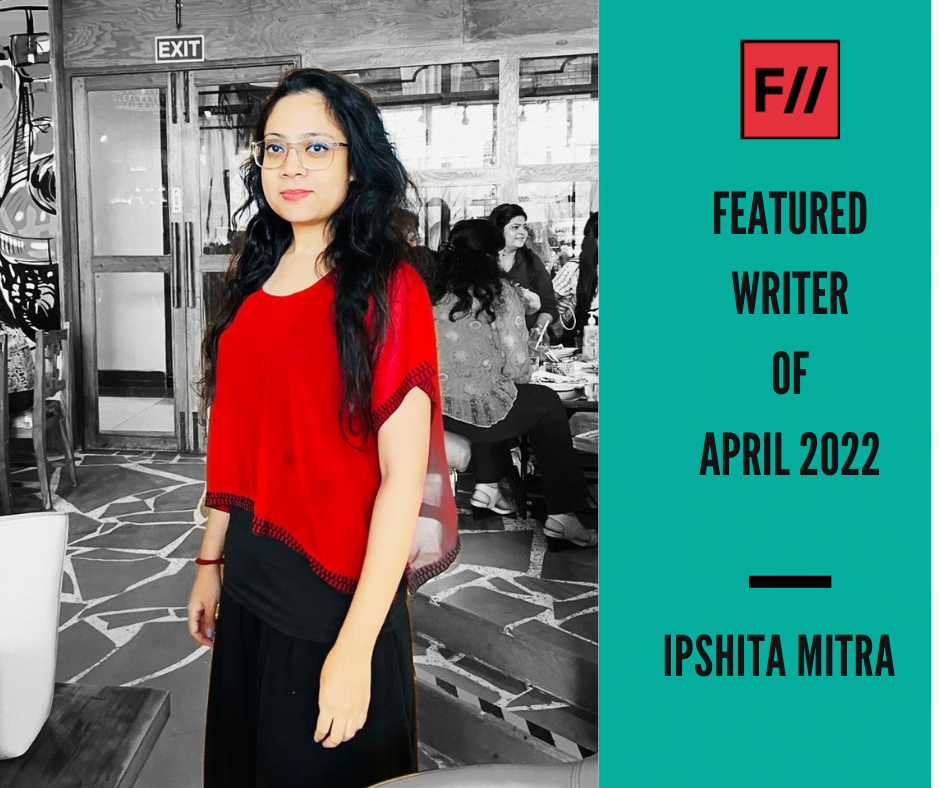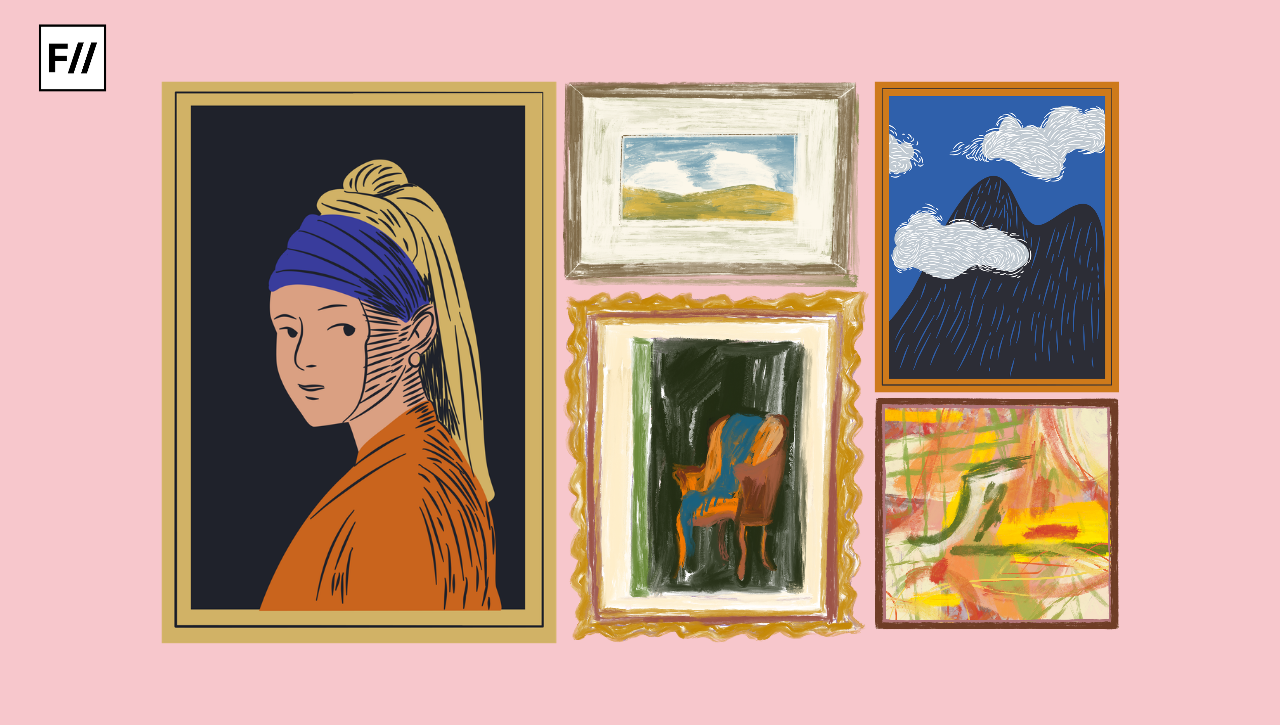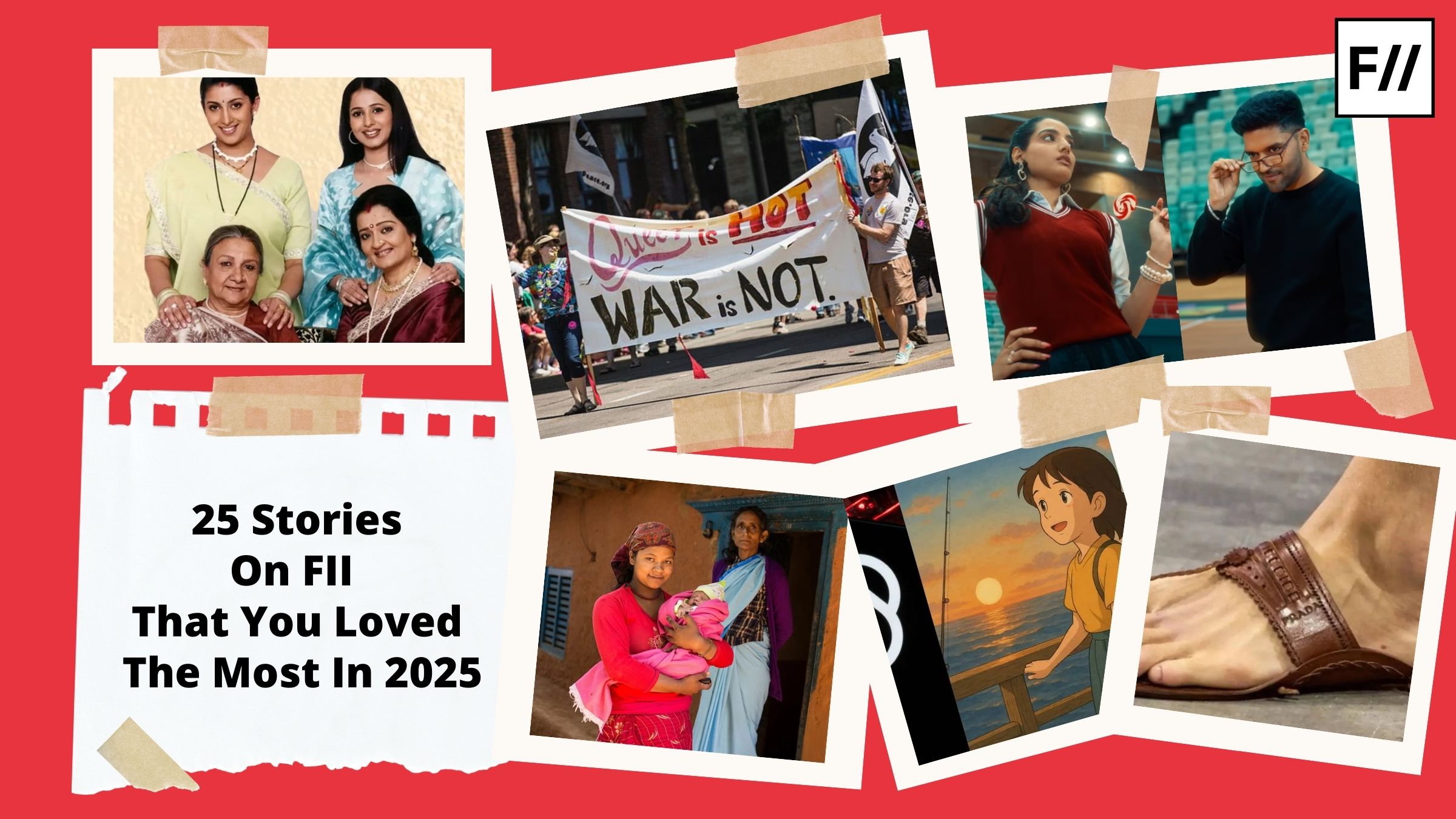We have been featuring the best writers from our writers’ community for their committed contribution to FII, making it what it is today. FII would not exist if not for the passionate and loyal feminist writers’ community that we have steadily been building over the last three years. This April, we feature Ipshita Mitra.
A journalist with over 10 years of experience, Ipshita has also written on books, culture, environment, and gender for TerraGreen, The Hindu, Scroll.in, The Wire, Wasafiri, Firstpost, Huffington Post, India Currents, and others. In 2016, her short story ‘Cacophony of Silence’ was published by Nikkei Voice, a Canadian-Japanese newspaper. In 2020, her short story ‘Bohemian Sailor of the Gulf’ was published by Sublunary Editions, a Seattle-based independent publisher. The Indian Quarterly (April–June 2021) published her short fiction, ‘Kabuliwala Returns’. Some of her popular articles include How Sexual Violence Gets Interpreted Under The Hetero-Masculinist Lens Of The State, Megha Rao’s ‘Teething’ Is A Kaleidoscope Of Smells, Sights & Silences, Does A Woman’s Opinion Matter? First, Let’s See If She’s Even Allowed One, among others.
FII: Tell us a little about yourself and what you do.
Ipshita Mitra: My name is Ipshita Mitra and I am pursuing a PhD in Gender and Development Studies from Indira Gandhi National Open University (IGNOU), New Delhi. I did my Bachelor’s in English Literature from Miranda House, Delhi University, and completed a PG Diploma in English Journalism from IIMC, thereafter. I have worked with The Times of India, The Asian Age, The Quint, Om Books International, and The Energy and Resources Institute (TERI). Recently, my debut collection of 21 verses titled, Smudged Ink and Other Poems was published by BookLeaf Publishing.
FII: How did you become a part of the FII writer family?
Ipshita Mitra: I have been a diligent reader of FII articles since 2019. As a student of gender studies, I can say with conviction that a researcher’s daily diet of reading must include a mandatory stopover at FII. All the stories are immaculately researched, cogent, and well-argued. It was a regular day when I happened to notice a ‘call for pitches’ on FII’s social media platform, which is when I mustered courage to send a pitch to the editorial team. What followed was an immensely gratifying exercise of not merely working on a piece but nourishing it as well. A happenstance made me an FII member and I couldn’t be more thrilled!
FII: How and when did you become a feminist? Which issues within feminism are close to your heart?
Ipshita Mitra: I am not sure if it was a conscious decision to become a feminist; it happened organically. My college years at Miranda House definitely had something to do with my understanding of feminism. Now, as a research scholar, I am exploring the myriad strands of feminism. For me, feminism is not just a concept or a movement, but a way of life. I am still learning, studying, and researching, and what I have realised is, we need feminism today more than ever. Also, the general tendency to perceive feminism as strictly about men and women is myopic. Newer perspectives on gender sustainability are emerging that challenge the philosophy of anthropocentrism. I wish to work on ecofeminism someday.
FII: What is your favourite piece on this site that you have written, and your favourite piece on this site that you have read? Why did they strike you?
Ipshita Mitra: How does one choose between multiple favourites! I think I absolutely loved working on my first piece, which eventually came out as a four-part series highlighting the works of some leading feminists – bell hooks, Sara Ruddick, Catherine A. MacKinnon, Sandra Harding, Judith Butler, and so on – vis-à-vis contemporary gender debates in India. The article: ‘How Sexual Violence Gets Interpreted Under The Hetero-Masculinist Lens Of The State’ is close to my heart. Personally, I love FII’s #IndianWomenInHistory segment because it resurrects some of the most fascinating narratives and histories (read herstories) of women who have been either dismissed or conveniently pushed into oblivion. For instance, Ramabai Ambedkar’s story moved me to the core. How easily we erase the stories and voices of such inspiring women who worked tirelessly and yet remained in the shadows of their male counterparts for centuries. Another story that I liked because of the depth of its research and uniqueness was, ‘What Happened to the Female Jatra Performers’.
FII: What do you like to do when not writing about gender and social justice?
Ipshita Mitra: I love listening to ghazals and poetry podcasts. Reading books is my definition of therapy. I also like to doodle sometimes, and lately, I have been obsessed with the game of Wordle. After I am done with the day’s Wordle, life seems empty for a while! Then of course, a steaming cup of chai wakes me up and pushes me to brave the day.
FII: What do you like about FII and our work? What more would you like to see from us?
Ipshita Mitra: I am learning the art of blending humility and professionalism from each and every FII member. My editor, Soumya Mathew is not only encouraging but she is extremely discerning and meticulous in her feedback and suggestions. Her inputs help me improve because as a writer, one tends to digress, and with an editor like her, things become clearer and simpler. I would definitely want FII to introduce short-term certificate courses on gender sustainability and feminist consciousness with a team of subject experts, academicians, activists, celebrities engaging in meaningful dialogues and debates on contemporary issues.
FII thanks Ipshita for her timely and valuable contributions. We are incredibly grateful to have her as a part of our writers’ community and appreciate her for her deeply informative writing. You can follow her on Instagram and Twitter.
About the author(s)
Feminism In India is an award-winning digital intersectional feminist media organisation to learn, educate and develop a feminist sensibility and unravel the F-word among the youth in India.




